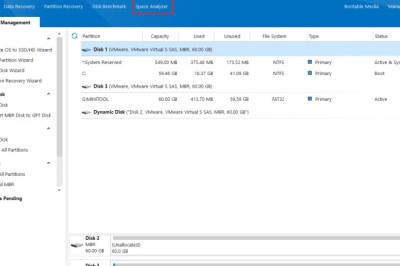views
The opioid epidemic is in full swing, thanks to widespread fentanyl use. With continual instances of overdoses and record numbers of deaths related to opioid use, it is as important as ever to understand how opioid addiction treatment works. Here’s why benzos are used to treat opioid addiction and whether it is a safe approach.
The Threat of Opioids
From morphine to heroin to OxyContin, the threat of opioid addiction has been a large part of drug abuse for decades. Opioids, which are commonly used to treat severe and chronic pain, play a key role as addiction develops because the brain’s opioid receptors are responsible for pain regulation. Since it overlaps with the brain’s reward system, users of opioid drugs experience euphoria, reward, and a lack of pain simultaneously, creating a very appealing environment for an addiction to be formed. In fact, some rank the opioid heroin as the most addictive substance in the world.
But not only are opioids highly addictive in general, but they are also potent drugs. When it comes to ranking the recent phenomenon of fentanyl use, it is common to compare it to, well, other opioids in terms of potency. For reference, the trend of opioid use has multiplied at an astronomical rate, and the best way to keep up with just how strong and potentially addictive these drugs are is to compare them to their predecessors.
For example, fentanyl, the deadliest opioid, is regularly described as a drug 50 times stronger than heroin and 100 times stronger than morphine. Fentanyl is regularly used to cut other street drugs, and the aftermath of doing this to unsuspecting people is a developed opioid addiction at best and a lethal overdose at worst. Plus, because of cost-cutting and wider availability, dealers will regularly advertise other opioids (hydrocodone, morphine, etc.) only to sell counterfeit pills altogether. This likely means that anyone involved in opioid use is almost guaranteed to be involved in fentanyl use.
How Benzos Work (For Good)
So, how are benzodiazepines, a drug with such high addictive potential that some doctors call them the new opioid, used as a cause for good in opioid addiction? Believe it or not, benzodiazepines have been used medically in various recovery processes, including in treatment plans to help people detox from alcohol. They specifically help people taper off their addiction impulses. The same is true when it comes to opioids. Like opioids, benzos suppress the central nervous system, but this is an advantage during opioid withdrawal because it helps people manage their hyperactivity symptoms and the central nervous system’s reaction to the absence of opioids in the body.
This should not be understood to say that benzos cure people from opioid addiction. In fact, benzo use is just one piece of the puzzle in a comprehensive treatment plan. Additionally, it is vital to understand that benzo use in combination with opioid use is a very dangerous thing to do. The Food and Drug Administration (FDA) warns that mixing these two drugs is a life-threatening risk since the two drugs do not mix well together in the central nervous system.
Using benzos as part of a treatment plan for opioid addiction recovery is something that should be done in a professional manner. Benzos bought illicitly can never be guaranteed to be what they’re sold as, and since dealers regularly use fentanyl to cut other drugs, the possibility of buying illicit benzos mixed with potent opioids such as fentanyl is very likely.
Maintaining Safety
With these risks and benefits in mind, it should be noted that benzo use in treating opioid addiction is a safe practice, as long as it's done in a medical environment with trained professionals. The safest route to take is having professionals create a comprehensive treatment plan, decide on the right benzo and dosage for you, and modify your dosage based on your progress. Not only does this help ensure you don’t overdose or become addicted to benzos in the process of trying to quit opioids cold turkey or on your own, but it also helps ensure you are looking toward the finish line of full recovery.
While the addictive potential of benzos is not to be dismissed, the risk is much higher for those who avoid treatment and continue using opioids. With the risk of lethal doses of opioids possibly existing in all kinds of street drugs today, it is more important than ever to seek help with overcoming addiction.
Sources
Delphi Health Group. (n.d.) Fentanyl Addiction: What Side Effects Should You Know About? Retrieved https://delphihealthgroup.com/opioids/fentanyl/
Delphi Health Group. (n.d.) Opioid Addiction and Treatment. Retrieved https://delphihealthgroup.com/opioids/
NIH. (2020 Feb 11). Opioid Addiction. Retrieved https://www.nih.gov/about-nih/what-we-do/nih-turning-discovery-into-health/opioid-addiction
Science Daily. (2007 Oct 15). How Does the Opioid System Control Pain, Reward and Addictive Behavior? Retrieved https://www.sciencedaily.com/releases/2007/10/071014163647.htm
Delphi Health Group. (n.d.). Heroin Addiction Guide: Symptoms, Treatment, and More. Retrievedhttps://delphihealthgroup.com/opioids/heroin/
CNN. (2019 Jun 8). The Five Most Addictive Substances in the World. Retrieved https://www.cnn.com/2019/01/02/health/most-addictive-substances-partner
CDC. (2022 Feb 23). Fentanyl Facts. Retrieved https://www.cdc.gov/stopoverdose/fentanyl/index.html
Delphi Health Group. (n.d.). Recognizing Fentanyl-Laced Xanax (How to Stay Safe). Retrievedhttps://delphihealthgroup.com/benzodiazepines/xanax/fentanyl-laced/
Yale Medicine. (2019 Dec 11). Are Benzodiazepines the New Opioids? Retrieved https://www.yalemedicine.org/news/benzodiazepine-epidemic
Delphi Health Group. (n.d.). Guide to Alcohol Detox: Severity, Dangers, and Timeline. Retrieved https://delphihealthgroup.com/alcohol/detox/
Delphi Health Group. (n.d.). Can Benzos Help with Opiate Withdrawal? How? Retrieved https://delphihealthgroup.com/benzodiazepines/opiate-withdrawal/
FDA. (2017 Sep 20). FDA Drug Safety Communication: FDA warns about serious risks and death when combining opioid pain or cough medicines with benzodiazepines; requires its strongest warning. Retrieved https://www.fda.gov/drugs/drug-safety-and-availability/fda-drug-safety-communication-fda-warns-about-serious-risks-and-death-when-combining-opioid-pain-or
Delphi Health Group. (n.d.). Medication Assisted Treatment. Retrieved https://delphihealthgroup.com/treatment-guide/medication-assisted-treatment/

























Comments
0 comment